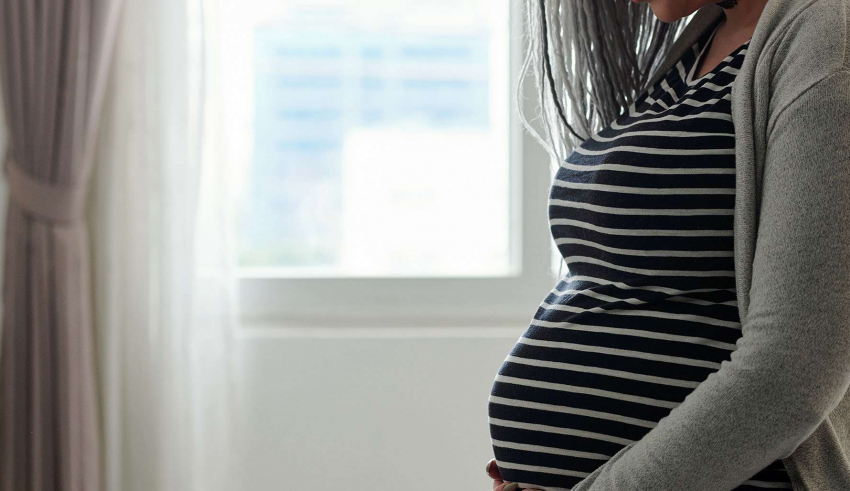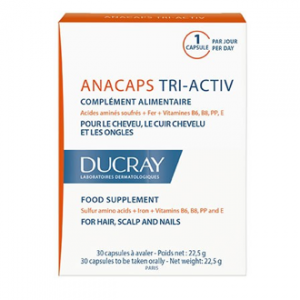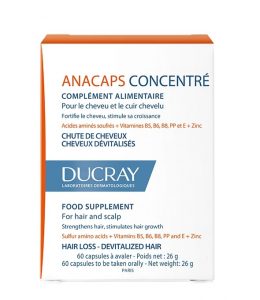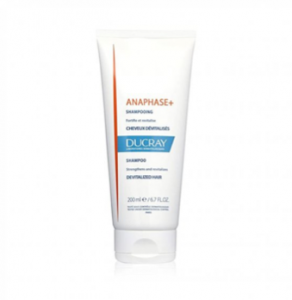
As your due date approaches, you’re probably looking forward to losing your big belly and extra pounds. But there’s one thing you may want to avoid: losing your thick, shiny hair. At a time when a mother is probably struggling to adjust to other changes in her body, seeing her hair fall out in clumps in the shower can be traumatizing. What causes postpartum hair loss? How long does it last? Don’t worry mama, you’re not going bald! In this article from The Dermo Lab, we will be answering all your questions and help you take care of your beautiful hair!
What is postpartum hair loss?
Many women experience hair loss a few months after delivery. You may notice that you are losing hair all over your head, or a little more on your forehead.
Although you may be worried, this type of hair loss is typical of the postpartum period.
What are the reasons for hair loss after pregnancy?
No, it’s not your imagination. Most women find that pregnancy thickens their hair. In fact, when you are expecting a child, the rise in pregnancy hormones prevents hair from falling out. Thus, hormonal fluctuations are the main reason for your hair changes in terms of thickness and texture during pregnancy and after childbirth. Pregnancy causes an increase in several hormones, including estrogen, progesterone, oxytocin, and prolactin. Your blood volume also increases during pregnancy, up to 50% more than normal by the time you give birth.
But all good things must come to an end, and that includes your beautiful hair. Just after giving birth, your hormone levels drop and as a result, so does your hair. Your blood volume also decreases, but more gradually. It returns to normal a few weeks after your baby arrives.
When does postpartum hair loss start and how long does it last?
Postpartum hair loss usually begins a few months after delivery, peaking at about 3 to 4 months post-delivery.
Postpartum hair loss usually lasts no longer than three months and begins to grow back about six months after your baby is born. At about 12 months after giving birth, your hair should be back to its pre-pregnancy state.
Before you panic, remember that this is only temporary and by the time your little one turns one, your hair will be as beautiful as before!
How to deal with postpartum hair loss?
Don’t freak, take a deep breath, and remind yourself that hair loss won’t last long. Still, there are steps you can take to make your hair look fuller, healthier, and more vibrant. Here’s how to significantly reduce hair loss after pregnancy:
1- Eat well.
Mothers who have just given birth need good nutrition to support their healing and recovery. Including a mix of fruits, vegetables and healthy proteins in your diet is key to ensure your body gets all the nutrients it needs.
Suggested foods to improve hair health are leafy green vegetables (rich in iron and vitamin C), sweet potatoes and carrots (rich in beta-carotene), eggs (rich in vitamin D), and fish (rich in omega-3 and magnesium).
2- Take your vitamins.
You should definitely take supplements that will give your hair the nutrients it needs. Vitamins nourish your hair from within and help it grow thicker and longer. So, take them for a few months and your hair will thank you later!
To add strength, vitality, and growth, Anacaps Food Supplements developed by Ducray, the iconic brand for hair care products, are a must. Made of iron and vitamins (B3, B6, and B8), and 100% gluten-free, it provides essential nutrients for strong and healthy hair. It also contains vitamin E, whose antioxidant action protects cells from the harmful effects of oxidation. Take 1 capsule per day with a glass of water for at least 3 months.
3- Wash your hair with an anti-hair loss shampoo.
Now, to nourish the hair from the outside, it is important to use a fortifying shampoo to restore strength and volume. We recommend Ducray Anaphase+ Anti-Hair Loss Complement Shampoo which strengthens your hair, stimulates its growth, and reduces hair loss thanks to its rich formula. It also restores volume and vitality with regular use. With time, you’ll notice your hair getting thicker and healthier!
Apply, lather, rinse, repeat application and leave on for 2-3 minutes.
Besides, whatever is the cause of hair loss, it is necessary to use an appropriate shampoo that will prepare the scalp for optimal absorption of anti-hair loss lotions.
4- Apply your hair care product.
When your hair is in a vulnerable phase make sure you choose hair care products specifically designed for thinning hair. For occasional female hair loss caused by childbirth, Ducray Creastim Anti-Hair Loss Lotion is exactly what you need. This lotion restores density, strength, and vitality to the hair. It also reduces hair loss with 84% anti-hair loss efficacy and thickens the hair shaft. Spray 10 times on the entire scalp 3 times/week for 2 months. Massage thoroughly.
5- Skip the styling.
Avoid hair dryers and curling irons if you can, and hold off on chemical treatments such as highlights, perms, and straightening until the hair loss stops.
Brushing too hard can also cause your hair to fall out in larger clumps. So be gentle and don’t do it more than once a day.
6- Get a short haircut.
Short hair needs fewer nutrients and may not fall out as much.
7- Talk to your physician if your hair loss is severe.
If you notice that your hair loss is particularly extreme or that you have been losing hair for more than six months, it may be time to see your doctor.
Hair loss after childbirth affects many women and can be a source of anxiety and stress. But remember, mamas, it’s only temporary. Mark your baby’s first birthday on the calendar and we bet by then you’ll be looking great again. In the meantime, the tips listed above will definitely stop your hair loss!
Last Updated on February 12, 2024














Ray
March 16, 2021 at 11:20 am
Very interesting article, i find it much informative and helpful. Are these products available in Qatar?